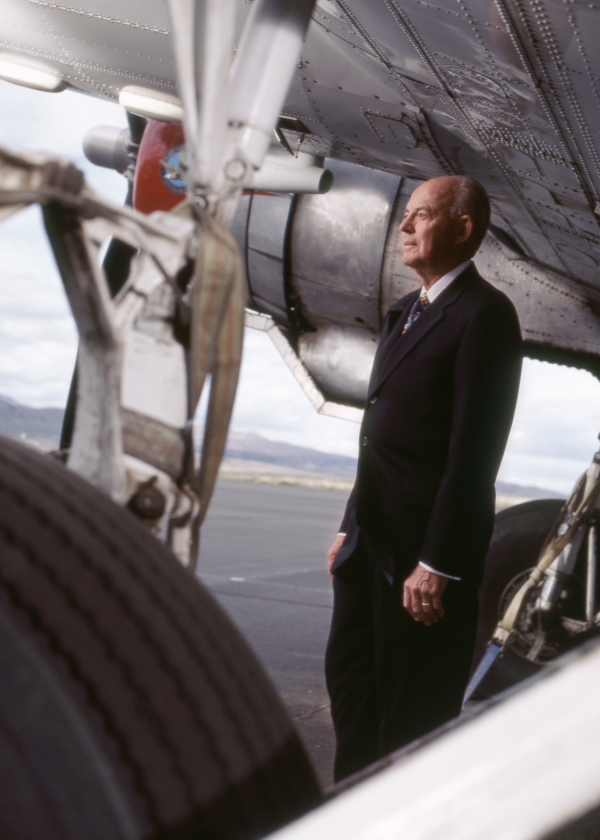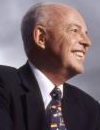“Nobody sings solo,” was our CEO Eddie Carlson’s favorite line when he was our leader at United Airlines and I was the group vice president of marketing.
On my office “wall of fame” are names of leaders and mentors with whom I’ve worked over the years. They taught me the importance of being disciplined and thinking strategically.
Some of those mentors include: Virgil and Mary Putnam, my parents on the Iowa farm; Jim Taylor, my high school principal and journalism instructor; Eddie Carlson, Chairman & CE O of United Airlines; Neil Armstrong and Gene Cernan, the first and last men on the moon; General Paul Tibbets, Commander of the B-29 Enola Gay that dropped the bomb ending WWII; Zig Ziglar, the great motivational speaker and author; Phil Guthrie, CFO at Southwest Airlines and Braniff and my teammate in other ventures; Herb Kelleher, co-founder and Chairman of Southwest Airlines who hired me as CEO; and Krista, Mike and Sue Putnam, my wife, son and daughter who always seem to know when my GPS needs a course correction.
O of United Airlines; Neil Armstrong and Gene Cernan, the first and last men on the moon; General Paul Tibbets, Commander of the B-29 Enola Gay that dropped the bomb ending WWII; Zig Ziglar, the great motivational speaker and author; Phil Guthrie, CFO at Southwest Airlines and Braniff and my teammate in other ventures; Herb Kelleher, co-founder and Chairman of Southwest Airlines who hired me as CEO; and Krista, Mike and Sue Putnam, my wife, son and daughter who always seem to know when my GPS needs a course correction.
There is a common thread with all of them. They think strategically, speak candidly and I have counted on their support in both good and turbulent times.
In 1981 when I left my position as CEO of Southwest Airlines and became CEO of the financially challenged Braniff International, we flew a 747 with 300 passengers from Dallas-Fort Worth Airport down to Harlingen, Texas for the Commerative Air Force annual air show and fly-bys. They maintain a fleet of WWII aircraft, including “FiFi,” which is the only remaining B-29 from the 3,000 that flew in WWII.
My reward was to fly on the mock bombing run in the nose position with General Tibbets as
the pilot and commander of the flight. He was quiet, humble and a patriotic American. He shook my hand and said, “Thanks for trying to save Braniff.” I thanked him for what he did. He simply smiled and said, “I just did my job.”
General Tibbets is a great example of strategic discipline in turbulent times. Jim Collins and Morten Hansen in Great By Choice, HarperCollins, 2011, devoted a chapter of their best seller to Southwest Airlines for its ability to withstand the winds of turbulence for over thirty years. Their research concluded that Southwest still adheres to 80 percent of the vision we wrote in 1979. They call it SMaC for Specific, Methodical and Consistent.
We had a disciplined NO list: No more than one kind of airplane, No first class, No meals, No seat assignments, No interlining of tickets or luggage, No high fares. And we just stuck to the things we were doing well. We were not a traditional airline. We were in the business of mass transportation and we kept the focus on people and nurtured a feeling of family amongst the entire Southwest team.
We hired people based on their positive attitudes and then often developed their skills. Keeping it simple was the key to our success, and we vowed to be disciplined and stick to the vision and the flight plan we wrote that was just 52 words long.
Southwest has gone from 3 airplanes and 80 employees in 1971 to over 600 airplanes, 50,000 employees and 40 consecutive years of profitability. Strategic discipline works in good times and in turbulence. Do what you do best and stick to it.
 Howard Putnam speaks on leadership, change, transformation, customer service, teams and ethics. He is the former CEO of Southwest Airlines and the first CEO to take a major airline, Braniff International, into, through and out of Chapter 11, getting it flying again in less than two years.
Howard Putnam speaks on leadership, change, transformation, customer service, teams and ethics. He is the former CEO of Southwest Airlines and the first CEO to take a major airline, Braniff International, into, through and out of Chapter 11, getting it flying again in less than two years.